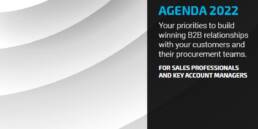The notion of the “unreasonable customer” has become very fashionable recently. Many marketing agencies use it as their new buzz word to seek for ‘board room’ and senior management attention.
Their idea: the established companies face a new challenge of needing to tame a new type of customer, a customer that is expecting the unreasonable, encouraged by and catered for by newly emerging, disruptive and very agile organizations that consider status quo, previous rules and established conventions as no longer binding.
UBER’s Children
This new type of customer is also referred to as “Uber’s children”. A generation of consumers that want everything here and now, convenience is king, and expectations are high whereas brand loyalty terribly low:
- Everything is expected to be available to order online, preferably through Amazon. And everything should be delivered within the hour or at latest the following day.
- “Alexa,…!” instead of typing anything any longer into a smart phone.
- Cancelling an Uber taxi after 5 minutes because of the long waiting time.
- Accepting nothing but instant access to music and movies. All in digital format of course because why would you want to own it? It is a consumable!
- “Don’t send me an email! Message me!”
- Expecting instantaneous customer service. Calling a helpline? Please invest in a chat bot.
- Trying new beer brands is fun – why always consuming the same?
- Knowing exactly when the new pair of jeans will be delivered, because why waste the whole afternoon at home waiting for the post (wo)man to arrive?
Totally unreasonable! What has our world become?
OMG
But wait a minute. This is exactly how you and I consume goods and services nowadays. So, we are the unreasonable customer! OMG, we are Uber’s children, impatient, erratic, unpredictable, moody – you could argue, we are a pain.
Well, I totally disagree with this and the notion of being an unreasonable customer. It is an excuse by the established companies justifying their complacency and for not being in touch with the customer in the end. Enabled by protective regulation and market domination that the big players clearly exploited over the years.
TIME
Time! Our most valuable resource is finally valued and considered in the economic equation. In my view, this is what these disruptive companies are actually all about, they give us our time back. Over are the times where you had to wait for something to happen and the length of that wait was what it was, predetermined and sometimes regulated – in the end it was just your time, so why bother? And indeed, nobody bothered because it was just the customers that wasted their time. And if they didn’t like it, well, too bad. To me, this is the real disruptive element that we are currently experiencing as consumers: our time that should have been part of any cost equation from the very beginning is finally being catered for.
In the past, it was totally acceptable to let us wait for 5 days or longer for our book order to arrive (of course delivered to your local book store that was only open until 5pm. Home delivery – are you crazy?). We were made believe that you had to pre-order a taxi and waiting for it for minimum 30 minutes is totally ok. We had to wait on the phone for 40 minutes until we could speak to a disgruntled service representative, if you want to complain just call this number but don’t expect it to be answered any faster. We had to consume products and services, not when we wanted, but when it was most economically convenient for the provider. We stayed at home between 8am-6pm because that was the time indicated for the new furniture to arrive – really?
Everything was better in the good old days?
I hence totally disagree that it is us that have become unreasonable, that we as consumers expect magical things to happen today. This statement makes me feel that in the past, everything seemed to be better and just because of some companies such as Amazon, Uber and Monzo, our beloved world has to change now. To the contrary – now we have choice, we have options, there is a changed perception to price, convenience and performance.
To conclude, the established companies need to start focusing on the customer more than their products. The product actually becomes the customer’s experience. It comprises the whole journey from selecting and accessing a product or service to disposing and recycling it. It is amazing that just now, with new technologies and a new mindset, we are getting closer to the original economic theories of efficient resource allocation elaborated by economists such as Adam Smith 250 years ago and finally take more (but not yet all) economic factors into account to price a product accordingly.
Let’s focus on the customer!
So, let’s not try to blame today’s customers of what businesses should have been considering for a long time already. As today’s business leaders, we need to make sure that we understand our customers and not dismiss their needs and expectations. Let’s change our attitude and bring the customer to the centre of our attention and activities. Your business strategy, your teams, your suppliers, the organization end to end, all of us need to start genuinely caring what the customer actually wants. We need to continuously improve what we offer. We need to be responsive. And we need to be competitive. A customer focused mindset throughout the organization is hence the way to win. Establishing this mindset, that has been the starting point for so many successful, disrupting companies of our times, has to be our goal.
Written by Jens Hentschel, Founder & CEO of THE FIVIS PARTNERSHIP. The Consultancy That Gets You Your Oomph Back. Find out more at www.fivis.io.


